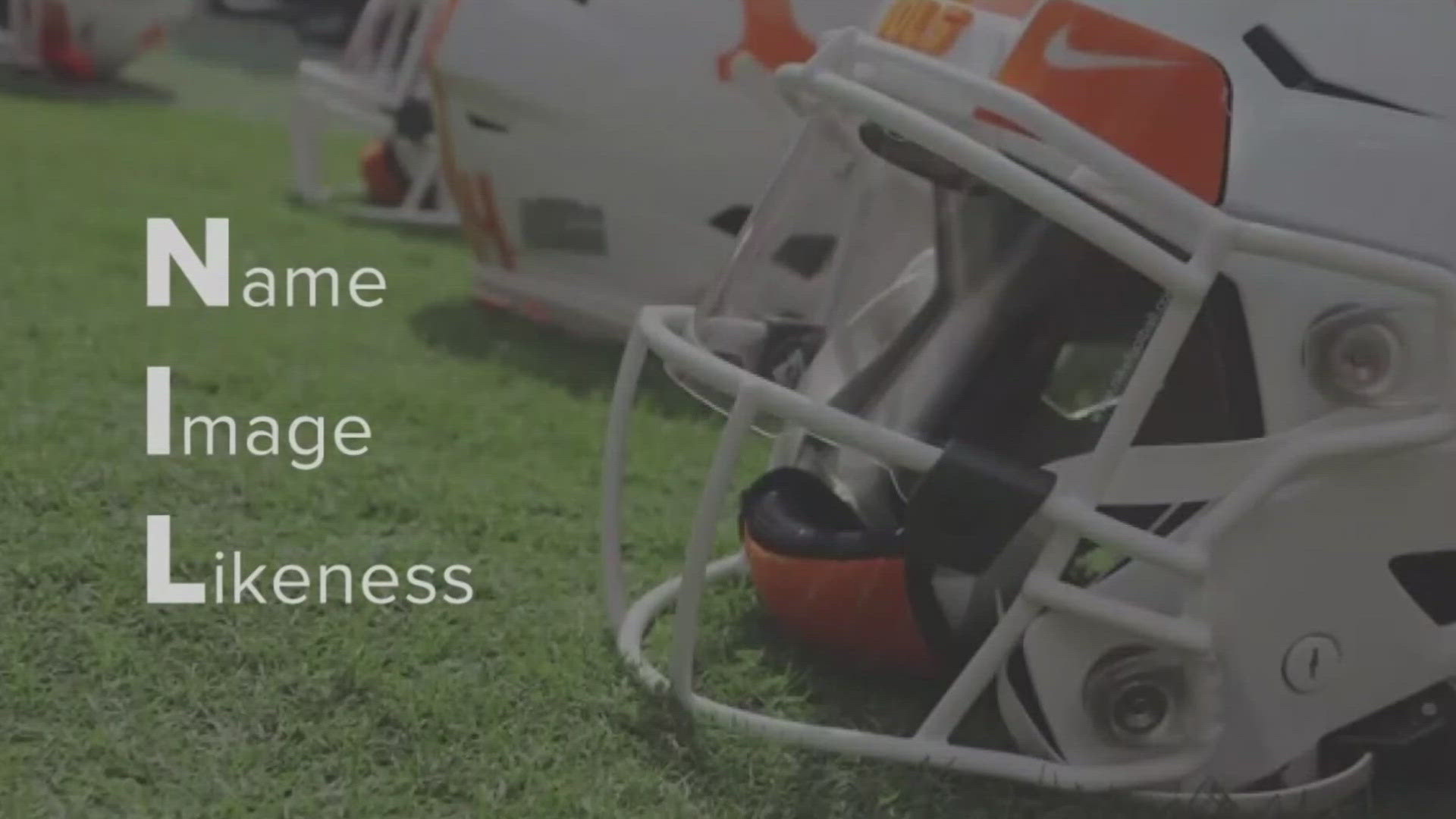KNOXVILLE, Tenn. — Several more states are joining Tennessee and Virginia in an ongoing battle against the NCAA over the future of name, image and likeness rules.
Tennessee Attorney General Jonathan Skrmetti announced Florida, New York, and Washington, D.C. have joined the multistate coalition in a lawsuit alleging the NCAA violated federal antitrust laws by placing restrictions on the ability of student-athletes to benefit from NIL.
The lawsuit is trying to overturn the NIL recruiting ban that prevents prospective athletes from negotiating NIL deals with collectives before they commit to a school, arguing the NCAA's ban is anti-competitive and violates the Sherman Act.
“We’re glad to keep fighting to protect student-athletes from illegal NCAA rules. I welcome the addition of our bipartisan partners to the case,” Skrmetti said. “The ultimate goal is to get the lawyers out of this and let student-athletes compete under fair and clear rules, but in the meantime, we’ll do our part to move things in the right direction.”
Tennessee and Virginia filed the lawsuit in January after the University of Tennessee announced the NCAA intended to investigate the school's NIL and recruiting activities. The news came just a few months after UT agreed to pay a fine and enter a five-year probation period to resolve a years-long NCAA investigation into recruiting violations that happened during former head football coach Jeremy Pruitt's tenure.
The New York Times suggested in a report that the pending NCAA investigation stemmed at least in part from a recruiting contact UT may have had with star quarterback Nico Iamaleava of California and the use of a private jet provided by an NIL collective before he committed in early 2022. Collectives have become the means by which athletes can secure and receive NIL deals.
The lawsuit continued to challenge the NCAA's definition of "amateurism," which it argued was an "amorphous concept" that the NCAA used as a guise while it "raked in billions of dollars in revenues 'on the backs of student-athletes.'"
States have argued that "amateurism" is a vague and outdated label when it comes to Division I sports because they now generate billions in revenue. The U.S. Supreme Court in 2021 agreed with the assessment when it decided the NCAA v. Alston case that allowed student-athletes to earn money from their name, image and likeness.
Tennessee's lawsuit argued the NCAA is still clinging to "amateurism" as a means to prevent student-athletes from being properly compensated in the NIL era. The NCAA said its NIL rules are meant to prevent pay-for-play recruiting in college sports.
"There are a lot of decisions being made in a lot of places that could have a significant decision on college sports, and our case helped get the ball rolling on those conversations," said Skrmetti.
In the 22-page complaint, states argued the NIL recruiting ban is particularly impacting college football and basketball players.
"Under the current restrictions, athletes must commit before knowing what NIL opportunities might be available. Very few collegiate athletes go 'pro' in their sport, and thus their NIL value is at its highest during their short collegiate careers. Their ability to negotiate the most valuable NIL deal is critical," the lawsuit said.
In February, a federal judge granted a preliminary injunction in favor of Tennessee and Virginia. The NCAA Division I Board of Directors responded by directing NCAA enforcement staff to pause any investigations involving third-party participation in NIL-related activities.
"I realize pausing NIL-related enforcement while these other bylaws are upheld by the injunction will raise significant questions on campuses. This is precisely why a DI meeting room, not a courtroom, is the best place to change NCAA policy," NCAA President Charlie Baker said. "The reason I took this job is to work with all of you to bring about positive change for student-athletes."

